Throughout history, hair related concerns have remained a prominent issue for individuals, particularly women. However, as society continues to progress, we have witnessed a significant increase in various hair and scalp ailments. In light of this, it becomes essential to identify and address the common hair problems that individuals often encounter. By doing so, we can effectively mitigate these issues and maintain optimal hair health. Join us on this enlightening journey as we delve into the world of hair care and explore the solutions with Nicehairvietnam!
Condition of having dandruff
When faced with the condition of dandruff, several telltale signs manifest, including an itchy scalp and the appearance of white flakes. Over time, these flakes tend to accumulate on the hair strands and shoulders, exacerbating the situation during the colder and drier seasons of autumn and winter when the air becomes cold and arid.
Dandruff is a common issue that can affect individuals of all ages and both genders, although men tend to be more susceptible to it than women. The exact causes of dandruff are not fully understood, but factors such as an overgrowth of yeast on scalp, hormonal imbalances, stress, poor hygiene or certain skin conditions like seborrheic dermatitis can contribute to its development. To effectively address and alleviate the symptoms of dandruff, it is crucial to adopt a comprehensive approach. We can overcome this problems for hair by taking the following steps:
- Regularly moisturize the scalp: Providing ample hydration to the scalp can help reduce itchiness and control dandruff. Using a gentle, moisturizing shampoo or incorporating natural remedies like applying coconut oil or aloe vera gel directly to the scalp can provide relief.
- Maintain a diligent hair washing routine: Keeping the scalp clean is essential in managing dandruff. Regularly shampooing the hair with a mild, anti dandruff shampoo can help remove excess oil, dead skin cells, and flakes, thus minimizing dandruff. It is advisable to let the shampoo sit on the scalp for a few minutes before rinsing to allow the active ingredients to work effectively.
- Avoid the use of harsh chemicals: Hair products that contain harsh chemicals, such as sulfates and strong fragrances, can irritate the scalp and worsen dandruff symptoms. Opt for gentle, sulfate-free shampoos and conditioners, and avoid excessive use of styling products that can weigh down the hair and contribute to a flaky scalp.
- Minimize stress levels: Stress has been linked to various skin conditions, including dandruff. Engaging in stress-reducing activities such as meditation, yoga, or regular exercise can help manage stress levels and potentially improve dandruff symptoms.
- Protect the scalp from environmental factors: Dust, pollution, and other environmental irritants can worsen dandruff. Wearing a hat or using a scarf can shield the scalp from these external factors, minimizing their impact on dandruff.
While these measures can be helpful in managing mild to moderate dandruff, it is important to consult a dermatologist or trichologist if the condition persists or worsens. They can provide a thorough evaluation and recommend targeted treatments, including medicated shampoos or topical solutions, to effectively combat stubborn dandruff. Consistent and proper hair and scalp care, along with a holistic approach to overall well being, can go a long way in addressing and preventing dandruff allowing you to enjoy a healthier, flake free scalp.
Condition of hair loss
On an average day, it is normal for us to lose approximately 50 – 100 strands of hair. This natural process of hair shedding is part of the body’s physiological cycle. However, if you notice an abnormal amount of hair loss exceeding 100 strands per day, especially during activities like shampooing, upon waking up while styling or brushing your hair, or if hair loss occurs in patches, then it may be an indication of a hair loss condition.
Hair loss can be caused by a variety of factors. Hormonal changes, thyroid disorders, physical exhaustion and stress, nutritional deficiencies or use of certain medications are some of the common culprits behind hair loss. To address the issue of hair loss, if you find yourself experiencing this condition, the first step is to consider incorporating specialized anti hair loss shampoos into your hair care routine. These shampoos are formulated to provide nourishment to the hair and scalp, while also effectively cleansing away dirt, excess oil and product buildup from the scalp.
Furthermore, it is important to adopt a holistic approach to hair care and overall well being to combat hair loss effectively. Here are some additional measures that can help in managing and reducing hair loss:
- Follow a balanced and nutritious diet: Ensure that you are consuming a well rounded diet rich in vitamins, minerals, and proteins. Incorporate foods such as fruits, vegetables, lean meats, whole grains, and nuts, which are beneficial for hair health.
- Take care of your scalp: Keep your scalp clean and free from excessive oil and dirt. Gently massage your scalp while shampooing to stimulate blood circulation and promote healthy hair growth.
- Avoid excessive heat and chemical treatments: Excessive heat from styling tools, such as straighteners and curling irons, as well as chemical treatments like perming and coloring, can damage the hair follicles and contribute to hair loss. Limit the use of such treatments and opt for heat protectants when styling.
- Manage stress levels: Chronic stress can disrupt the natural hair growth cycle and contribute to hair loss. Incorporate stress management techniques such as meditation, yoga, or engaging in hobbies that help you relax.
- Consult a healthcare professional: If you have tried these measures and continue to experience excessive hair loss or if the hair loss is causing concern, it is advisable to seek professional advice from a dermatologist or a trichologist. They can provide a thorough evaluation of your condition, identify the underlying cause, and recommend appropriate treatment options.
Remember, addressing hair loss requires patience and consistency in implementing a comprehensive hair care routine. By combining proper hair care practices, a balanced diet, and a healthy lifestyle, you can take proactive steps towards managing and reducing hair loss, ultimately promoting healthier and fuller hair.
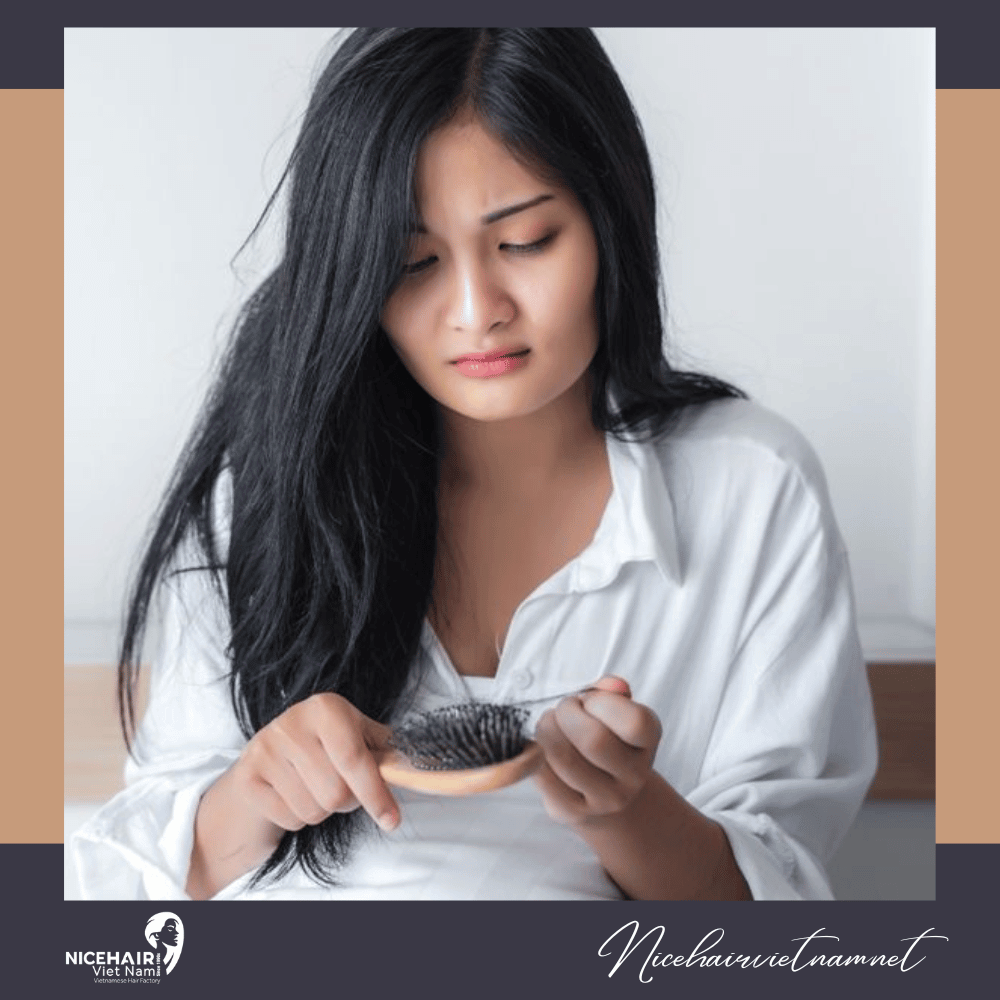
Hair shows signs of hair dry
What does “dry hair” mean? Dry hair is a prevalent issue that many individuals are currently facing. It occurs when scalp fails to produce enough natural oils to nourish the hair or when the hair is unable to retain adequate moisture. Prolonged dryness can result in a damaged outer hair layer, leading to lifeless, dull, brittle, split ends, and increased susceptibility to breakage.
To address the problems of dry hair, there are several effective remedies that can be implemented:
- Adjust your hair washing routine: Consider reducing the frequency of hair washing to every other day or 2 – 3 times per week. This helps to prevent stripping away the natural oils from the scalp, allowing it to maintain a healthier moisture balance.
- Incorporate nourishing hair oils or conditioners: Introduce the use of hair oils or leave in conditioners specifically formulated to add shine and softness to dry hair. Look for products that provide deep hydration and nourishment. Apply these products from the mid-lengths to the ends of your hair, avoiding the scalp to prevent excess greasiness.
- Limit heat styling: Excessive heat from blow dryers, curling irons, or straighteners can further dehydrate the hair, exacerbating dryness. Minimize the use of heat styling tools and always apply a heat protectant product before styling to minimize damage caused by heat.
- Shield your hair from environmental factors: Environmental factors like sun exposure, wind, and harsh weather conditions can contribute to dryness. Protect your hair by wearing a hat or scarf, especially during prolonged sun exposure or extreme weather conditions.
- Treat your hair to deep conditioning: Regularly indulge in deep conditioning treatments once or twice a month. These treatments help replenish moisture and nourish the hair, improving its overall health and appearance. Look for hydrating masks or deep conditioners specifically designed for dry hair.
- Opt for gentle hairbrushing: Use a wide toothed comb or a brush with soft bristles to gently detangle your hair. Avoid aggressive brushing, especially when the hair is wet, as it can lead to breakage and further damage to dry hair.
- Maintain a balanced diet and stay hydrated: A nutritious diet rich in vitamins, minerals, and essential fatty acids promotes healthy hair. Ensure you are adequately hydrated by drinking enough water daily, as it helps keep your hair and scalp moisturized from within.
Remember, restoring moisture and improving the condition of dry hair requires consistent effort and patience. By incorporating these remedies into your hair care routine, you can help revive your hair, enhance its health, and achieve a lustrous, vibrant mane.
Problems of hair split ends
Problems of split ends is a condition characterized by the dryness, fragility, and fraying of the hair tips. Occurrence of split ends can be attributed to various factors, such as exposure to harsh weather conditions or styling techniques like blow drying and straightening. To address the issue of split ends, restoring them to their original state is virtually impossible. However, you can focus on taking better care of your hair to prevent further damage and minimize the appearance of split ends. Your hair can be remedied from these problems by:
- Maintain optimal hair care: Pay extra attention to the overall health and hydration of your hair. Use moisturizing shampoos and conditioners specifically designed for repairing damaged hair. Additionally, consider incorporating deep conditioning treatments or hair masks into your routine to nourish and hydrate your hair.
- Minimize heat styling: Excessive heat from styling tools can contribute to dryness and the formation of split ends. Limit the use of heat styling tools like blow dryers, straighteners, and curling irons. When you do use them, apply a heat protectant spray to minimize damage.
- Protect your hair from environmental factors: Shield your hair from harsh weather conditions, such as strong winds or extreme sun exposure. Consider wearing a hat or using a scarf to minimize the impact of environmental stressors on your hair.
- Trim regularly: Regular hair trims are essential for preventing split ends from spreading further up the hair shaft. Schedule regular visits to the salon to trim off the damaged ends. This will help maintain the overall health and appearance of your hair.
- Handle with care: Be gentle when brushing or combing your hair, especially when it’s wet. Use a wide toothed comb or a brush with soft bristles to avoid unnecessary tugging and breakage. Start from the bottom and work your way up to detangle your hair without causing additional damage.
- Avoid excessive chemical treatments: Chemical treatments like coloring, perming, or relaxing can weaken the hair and contribute to split ends. If possible, minimize the use of such treatments or opt for less damaging alternatives.
- Nourish from within: A healthy diet rich in vitamins, minerals, and proteins can contribute to the overall health of your hair. Ensure you’re consuming a balanced diet and staying hydrated to promote strong and resilient hair.
While it may not be possible to fully restore split ends, taking these proactive measures will help improve the condition of your hair and minimize the appearance of split ends. Prevention and ongoing care are key to maintaining healthy looking hair.
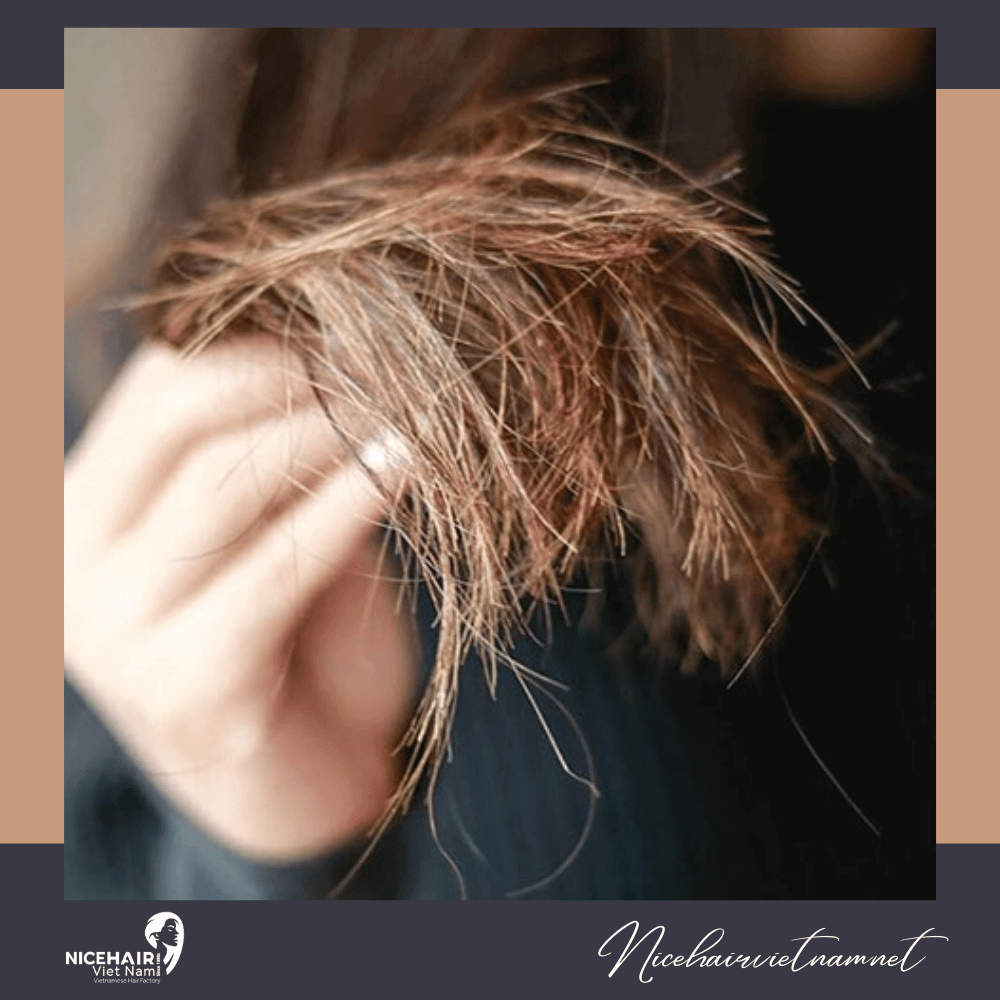
Problems of frequent oily hair
Unlike dry hair, oily hair is a phenomenon that occurs when there is an overproduction of oil on the scalp. This condition, while not causing direct damage to the hair, this problems can be quite uncomfortable and have a negative impact on one’s self-confidence. Excess oil on the scalp can make the hair look greasy and weighed down, requiring more frequent washing to maintain a fresh and clean appearance. It can also lead to issues such as a flat and lifeless look, lack of volume and difficulty in styling the hair.
To address the issue of frequent oily hair, there are several measures you can take to help manage and control the excess oil production:
- Choose the right shampoo: Opt for a shampoo specifically formulated for oily hair. Look for products that are labeled as clarifying or oil controlling, as they can help remove excess oil and residue from the scalp. Avoid heavy or moisturizing shampoos, as they can exacerbate the issue by adding more moisture to the hair.
- Focus on the roots: When shampooing, concentrate on cleansing the roots and scalp rather than the lengths and ends of the hair. This will help remove excess oil from the source and prevent it from weighing down the hair.
- Rinse thoroughly: Make sure to rinse your hair thoroughly after shampooing to ensure that no residue or product buildup is left behind. Residue can contribute to the appearance of oily hair.
- Avoid excessive heat styling: Heat styling tools like blow dryers, curling irons, and straighteners can stimulate the production of oil on the scalp. Minimize the use of these tools or opt for heat protectant products to reduce the heat’s impact on your hair.
- Don’t over wash: While it may be tempting to wash your hair frequently to combat the oiliness, over washing can strip the scalp of its natural oils, leading to an overproduction of oil as a compensatory mechanism. Aim to wash your hair every other day or every few days to maintain a balanced oil production.
- Use dry shampoo: Dry shampoo can be a lifesaver for those with oily hair. It can help absorb excess oil and give the hair a refreshed appearance between washes. Apply it to the roots and massage it in, then brush out any residue.
- Avoid touching your hair excessively: Touching your hair throughout the day can transfer oils from your hands to your hair, exacerbating the oily appearance. Try to refrain from touching your hair unnecessarily.
- Watch your diet: Certain foods, such as greasy or fried foods, can contribute to excessive oil production in the body, which can manifest in oily hair. Opt for a balanced diet rich in fruits, vegetables, and lean proteins to support overall hair health.
It’s important to note that everyone’s hair is different and what works for one person may not work for another. Finding the right routine and products that suit your hair type and scalp condition may require some experimentation. If the problem persists or worsens, it’s advisable to consult a professional hairstylist or dermatologist who can provide personalized recommendations and guidance to address your specific concerns regarding oily hair.
Hair tends to become dull in color
There are several factors that contribute to hair looking dull in color, such as hair damage caused by chemicals, heat, environmental pollution, dirt or improper hair washing habits. To address this issue, it is recommended to follow these remedies:
- Rinse with cold water: After shampooing and conditioning, make sure to rinse your hair thoroughly with cold water. Cold water helps to constrict the hair cuticles, resulting in smoother and shinier hair appearance.
- Use the right amount of shampoo: Use an appropriate amount of shampoo for your hair length and texture. Avoid using too much shampoo, as it can strip away the natural oils from your hair, leading to dryness and dullness.
- Ensure a thorough hair wash: Take the time to properly wash your hair, massaging the scalp to stimulate blood circulation and remove any buildup of dirt or product residue. This helps to keep the hair and scalp clean, promoting healthier looking hair.
- Consider clarifying treatments: Incorporate clarifying treatments into your hair care routine once in a while to remove any accumulated residue or impurities that may be weighing down your hair and making it appear dull. These treatments can help restore shine and vibrancy to your hair.
- Protect from heat and environmental damage: Limit the use of heat styling tools, such as flat irons and curling wands, as they can cause damage and make the hair look dull. Additionally, protect your hair from environmental factors like sun exposure and pollution by using protective products or wearing a hat or scarf.
- Hydrate and nourish: Use moisturizing and nourishing hair products, such as conditioners and hair masks, to replenish moisture and nutrients to your hair. This can help improve its overall health and shine.
- Maintain a healthy diet: Proper nutrition plays a crucial role in maintaining healthy and vibrant hair. Ensure you have a balanced diet rich in vitamins, minerals, and proteins, which are essential for hair health.
- Limit chemical treatments: Excessive use of chemical treatments like hair dyeing, perming, or straightening can damage the hair and make it appear dull over time. Try to minimize the frequency of these treatments and opt for gentler alternatives when possible.
Remember, achieving vibrant and lustrous hair may require patience and consistency in your hair care routine. It’s important to choose products and practices that work best for your hair type and address any specific concerns you may have. If the problem persists or worsens, consulting a professional hairstylist or trichologist can provide personalized advice and guidance tailored to your needs.
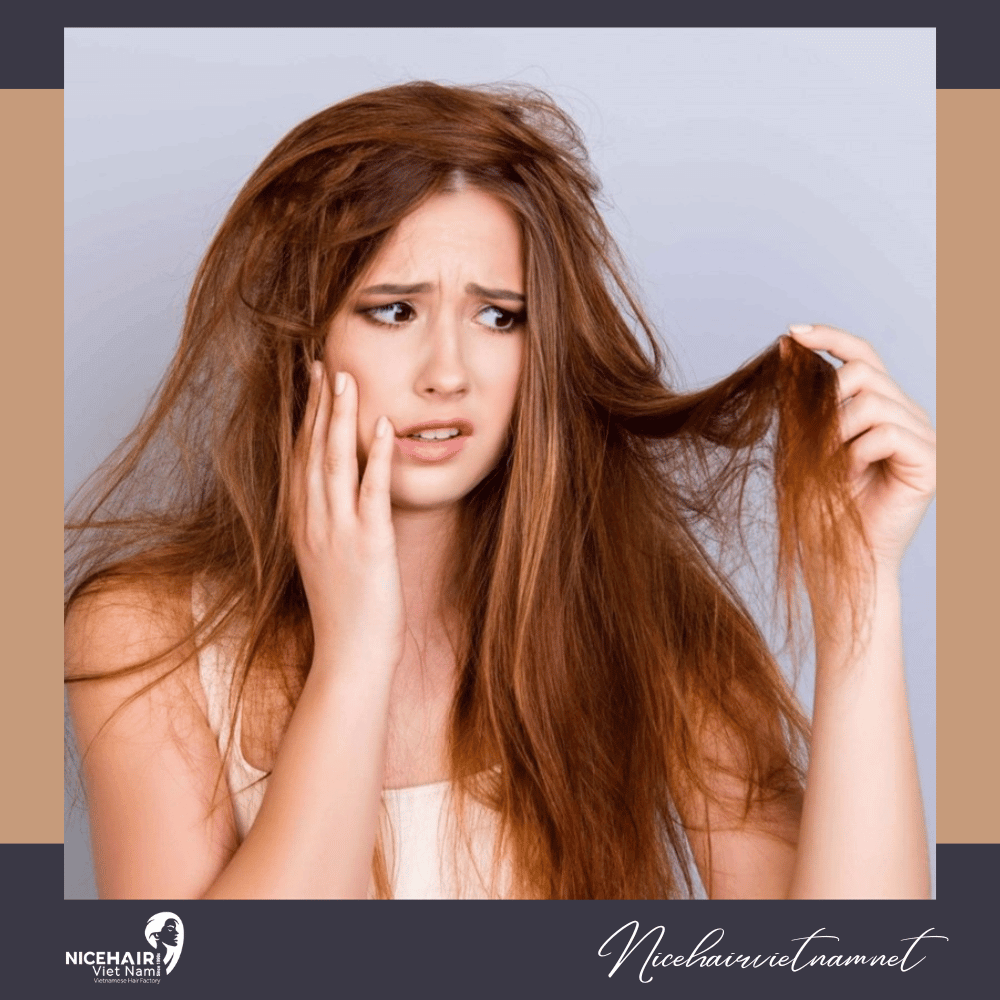
Problems of curly hair
Curly hair is a characteristic that indicates a reduced moisture level in the hair, which is lower than the normal range. It can also be a result of genetic factors, where even healthy hair has a natural tendency to form curls. To address the challenges associated with curly hair, it is essential to adopt a suitable hair care routine.
Firstly, choosing the right products specifically formulated for curly hair can make a significant difference. Look for shampoos, conditioners and styling products that provide hydration, define curls, and reduce frizz. These products are often enriched with moisturizing ingredients such as oils, shea butter or aloe vera, which help restore moisture and enhance the natural texture of curly hair. Regular deep conditioning treatments can also be beneficial for curly hair. Deep conditioners or hair masks that are specifically designed to nourish and hydrate can help replenish moisture, reduce frizz, and improve the overall health and appearance of curly hair. Consider incorporating these treatments into your hair care routine at least once a week to keep your curls well nourished and hydrated.
In addition to using suitable hair care products, it’s important to handle curly hair with care. Avoid brushing or combing your hair when it’s dry as this can cause frizz and breakage. Instead, detangle your hair gently using a wide toothed comb or your fingers when it’s wet and coated with conditioner to minimize damage. Opt for a microfiber towel or a soft cotton t-shirt to dry your hair, as rough towel drying can lead to frizz. Another tip for managing curly hair is to embrace natural drying methods. Avoid using excessive heat from hair dryers or styling tools, as this can further dehydrate the hair and disrupt the natural curl pattern. Instead, allow your hair to air dry or use a diffuser attachment on a low heat setting to gently dry your curls while preserving their shape.
Regular trims are also essential for maintaining healthy and well defined curls. Trimming the ends of your hair regularly helps prevent split ends and breakage, which can make curly hair appear dull and less defined. Aim to schedule a trim every 6 to 8 weeks to maintain the shape and health of your curls.
Lastly, embrace your natural curls and find hairstyles that complement your unique texture. Experiment with different styling techniques, such as twist-outs, braid outs, or bantu knots, to enhance your curls’ definition and create versatile looks. Embracing your natural hair texture and finding the right techniques and products for your curls will help you achieve beautiful, healthy and vibrant curly hair. By adhering to these steps, you will be able to address this problems.
Damaged hair caused by heat
Heat styling tools like curling irons and straighteners can make your hair look fabulous by creating beautiful curls or sleek, straight locks. However, prolonged and excessive use of these tools can lead to damage and compromise the health of your hair. When exposed to high temperatures, your hair’s natural moisture is depleted, causing it to become dry, brittle, and prone to breakage. The outer protective layer of your hair, called the cuticle, can also become damaged, resulting in split ends, frizziness and a lackluster appearance.
To address the issue of heat-damaged hair, it’s essential to adopt a comprehensive approach to repair and protect your locks. Here are some steps you can take:
- Reduce heat styling: Give your hair a break from heat styling tools. Limit their usage and opt for heat free styling methods whenever possible. Embrace natural hairstyles and embrace your hair’s natural texture.
- Use heat protectants: Before using any heat styling tool, apply a heat protectant product to your hair. These products create a barrier between your hair and the heat, reducing damage and maintaining moisture. Look for heat protectants that offer both thermal protection and nourishing properties.
- Hydrate and nourish: Invest in hair care products specifically designed to hydrate and repair this problems. Choose shampoos, conditioners and hair masks that are formulated with moisturizing and strengthening ingredients like argan oil, shea butter or keratin. These products will help replenish moisture, restore elasticity, and improve the overall health of your hair.
- Trim regularly: Schedule regular trims to remove split ends and prevent further damage. Trimming your hair every few months will keep your ends healthy and prevent splitting from traveling up the hair shaft.
- Deep conditioning treatments: Treat your hair to regular deep conditioning treatments to provide intensive moisture and nourishment. Consider using hair masks or leave-in conditioners that are specifically formulated for damaged hair. These treatments help restore moisture, repair damage, and improve the overall texture and appearance of your hair.
- Protect from environmental factors: Protect your hair from environmental stressors such as sun exposure and pollution. Wear a hat or use UV protection sprays when spending time outdoors. Rinse your hair thoroughly after swimming in chlorinated or saltwater and use clarifying shampoos occasionally to remove product buildup.
By following these steps and maintaining a consistent hair care routine, you can gradually repair and rejuvenate heat damaged hair. Patience and consistency are key as it may take time for your hair to regain its health and vitality. Prevention is always better than repair problems so prioritize protecting your hair from excessive heat in the future to maintain its optimal condition.
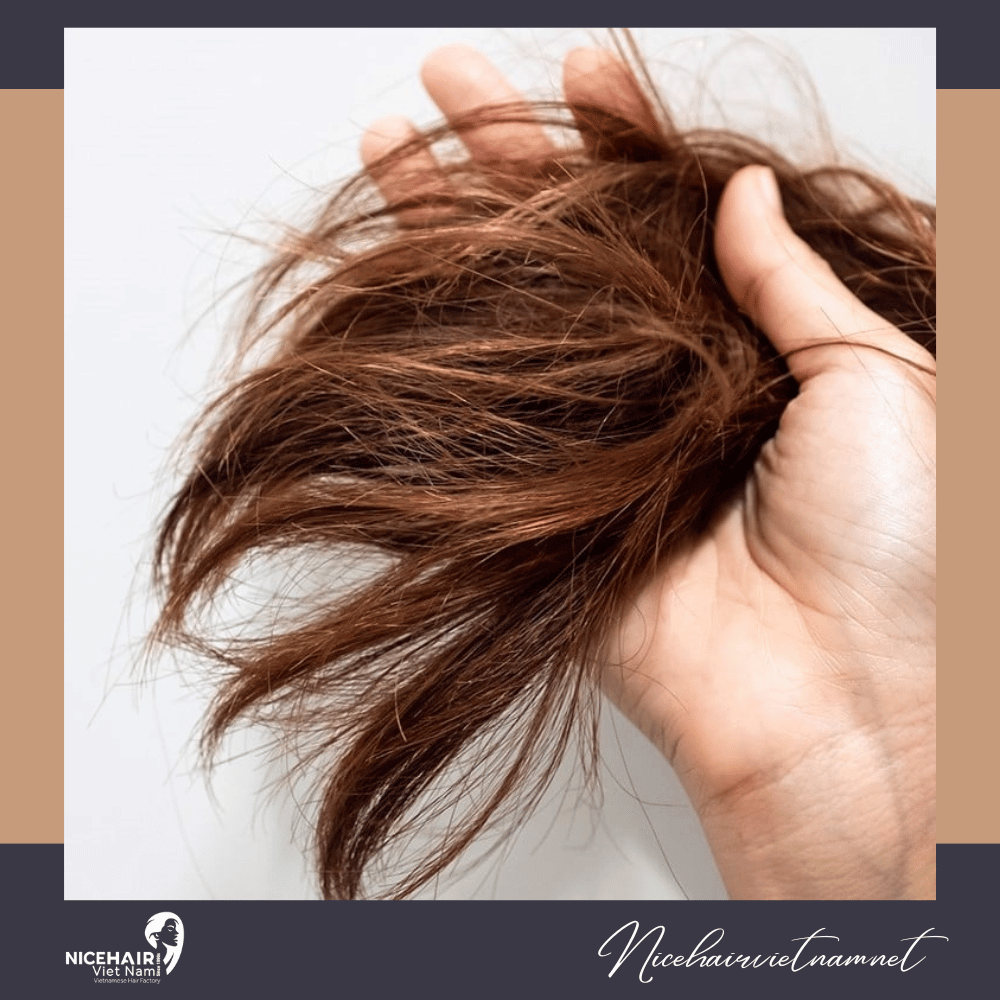
Gray hair
One of the common hair problems many people experience is “gray hair.” As we age, our hair follicles produce less melanin, the pigment responsible for hair color. This reduction in melanin production leads to the appearance of gray or silver hair instead of the natural color. Gray hair is a natural part of the aging process and typically becomes more noticeable around ages of 40 to 50. However, some individuals may notice gray hair at a younger age due to various factors, including genetics, lifestyle, and environmental influences.
If you’re facing issues with gray hair, it’s essential to understand that it’s a normal occurrence. Embracing your natural gray hair can be a positive and empowering choice. However, if you’re concerned about premature graying or its impact on your self esteem, there are several options available. Many people choose to color their hair to cover up the gray. Hair dyes, highlights and other coloring techniques can provide a temporary solution, allowing you to maintain your desired hair color. It’s important to note that hair dyes require regular maintenance to keep up with the growth of new gray hair.
If you’re interested in a more natural approach, there are also henna based dyes and herbal remedies available. These options can provide subtle color variations and minimize the risk of chemical damage. Additionally, maintaining a healthy lifestyle can contribute to overall hair health, including the prevention of premature graying. A balanced diet rich in vitamins and minerals, regular exercise and problems of stress management techniques can help support the health of your hair and delay the onset of gray hair.
Ultimately, the choice of how to address your gray hair is personal. It’s crucial to embrace and celebrate your unique hair journey, whether you choose to embrace the gray or explore different coloring options. Remember, your hair is a reflection of your individuality and can be an opportunity for self-expression and confidence.
Water pollution
Water pollution can have a profound impact on the health and appearance of your hair, leading to a range of hair problems. When the water source is contaminated, it can become a significant contributor to excessive hair loss. If you notice a significant increase in hair fall, it is crucial to investigate whether water pollution is the underlying cause.
Contaminated water contains harmful pollutants, chemicals, and impurities that can wreak havoc on your hair. No matter how meticulously you follow a hair care routine or use various products, if the water you use is polluted, it can negate your efforts and result in continued hair loss. Moreover, polluted water can have detrimental effects not only on your hair but also on your scalp health. Water containing high mineral content or impurities can lead to scalp issues such as dryness, itchiness and even more severe conditions like sores and fungal infections. These scalp problems can further exacerbate hair loss and impact your overall well-being.
Therefore, it is essential to address water pollution as a crucial factor in hair problems. Taking steps to purify or find alternative sources of clean water for washing your hair can significantly improve its health and reduce hair fall. Installing water filters or using specialized hair products designed to counter the effects of water pollution can also be beneficial.
By acknowledging and actively combating the detrimental effects problems of water pollution on your hair, you can protect your hair’s vitality and maintain its natural beauty. The quality of the water you use plays a vital role in preserving the health and appearance of your hair.
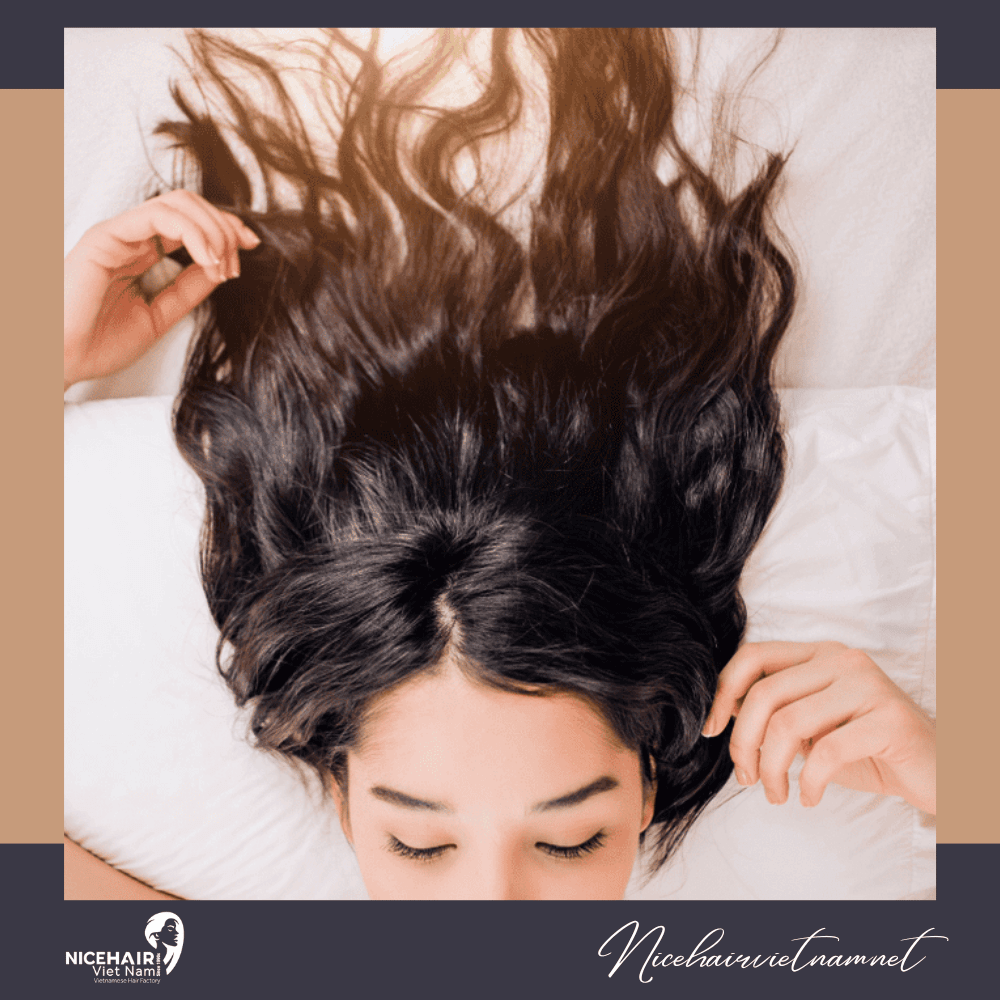
Problems hair loss after childbirth
Hair problems, specifically excessive hair loss are commonly experienced by women after giving birth. This can be attributed to various factors, including hormonal imbalances, changes in the endocrine system, physiological adjustments and emotional fluctuations that occur postpartum. These changes can disrupt the natural hair growth cycle, leading to increased hair shedding. Hormonal shifts that take place during pregnancy and after childbirth can have a significant impact on the hair. Many women notice an increase in hair loss within a few months after giving birth which can be quite distressing. It’s important for new mothers to be aware of this potential issue and take proactive measures to address it.
One crucial aspect is maintaining a well balanced diet. Consuming nutrient rich foods, such as fruits, vegetables, whole grains and lean proteins can provide the necessary vitamins and minerals to support healthy hair growth. Additionally, staying hydrated by drinking an adequate amount of water is essential for maintaining overall hair health. Implementing a proper hair care routine is also crucial. Using mild, sulfate free shampoos and conditioners can help nourish the scalp and hair follicles. Avoiding excessive heat styling, chemical treatments and tight hairstyles can minimize hair breakage and damage. Gentle scalp massages can improve blood circulation and promote hair growth.
Furthermore, it’s important for new mothers to prioritize their emotional well being. Postpartum emotions and stress can contribute to hair problems. Engaging in stress reducing activities, practicing relaxation techniques and seeking support from loved ones or professionals can help maintain a positive mindset, which can positively impact both mental health and hair health.
By paying attention to their diet, hair care routine, and emotional well being, new mothers can effectively address hair problems and promote healthy, vibrant hair while embracing the joys of motherhood.
Hair loss due to excessive use of cosmetics
In the current market, there are many hair care products that claim to promote rapid hair growth, voluminous hair and overall hair beauty. These products often lack transparency regarding their sources and ingredients. While many people purchase and use these products with the hope of achieving beautiful hair, it is important to be aware that using such products of unknown origin can lead to various hair problems, including hair loss as well as adverse effects on the scalp.
The increasing desire for beauty has led to a surge in the popularity of hair styling techniques such as curling, straightening and chemical treatments. However, without proper knowledge of hair nourishment and care, these procedures can leave the hair dry, brittle, prone to tangles and susceptible to breakage. It is crucial to be cautious when choosing hair care products and to prioritize those with clear and reliable origins. Using products with unknown or dubious sources can expose the hair and scalp to potentially harmful ingredients, which can not only contribute to hair loss but also negatively impact the health of the scalp.
With the rising demand for beauty, it is essential to educate oneself about the potential risks associated with certain hair care practices. While achieving the desired look is important, it should not come at the expense of hair health. It is advisable to seek professional advice and opt for reputable brands that prioritize quality and transparency. Furthermore, understanding the importance of hair nourishment and maintenance is key to preventing hair problems. Regularly moisturizing and conditioning the hair with suitable products can help combat dryness, minimize tangles, and reduce hair breakage. It is crucial to adopt proper hair care routines. This includes avoiding excessive heat styling, limiting the use of harsh chemicals, and practicing gentle brushing techniques to minimize hair damage.
By being mindful of the origins and ingredients of hair care products, prioritizing hair health over quick fixes, and following appropriate hair care practices, individuals can prevent and address common hair problems such as hair loss, dryness, tangling and breakage.
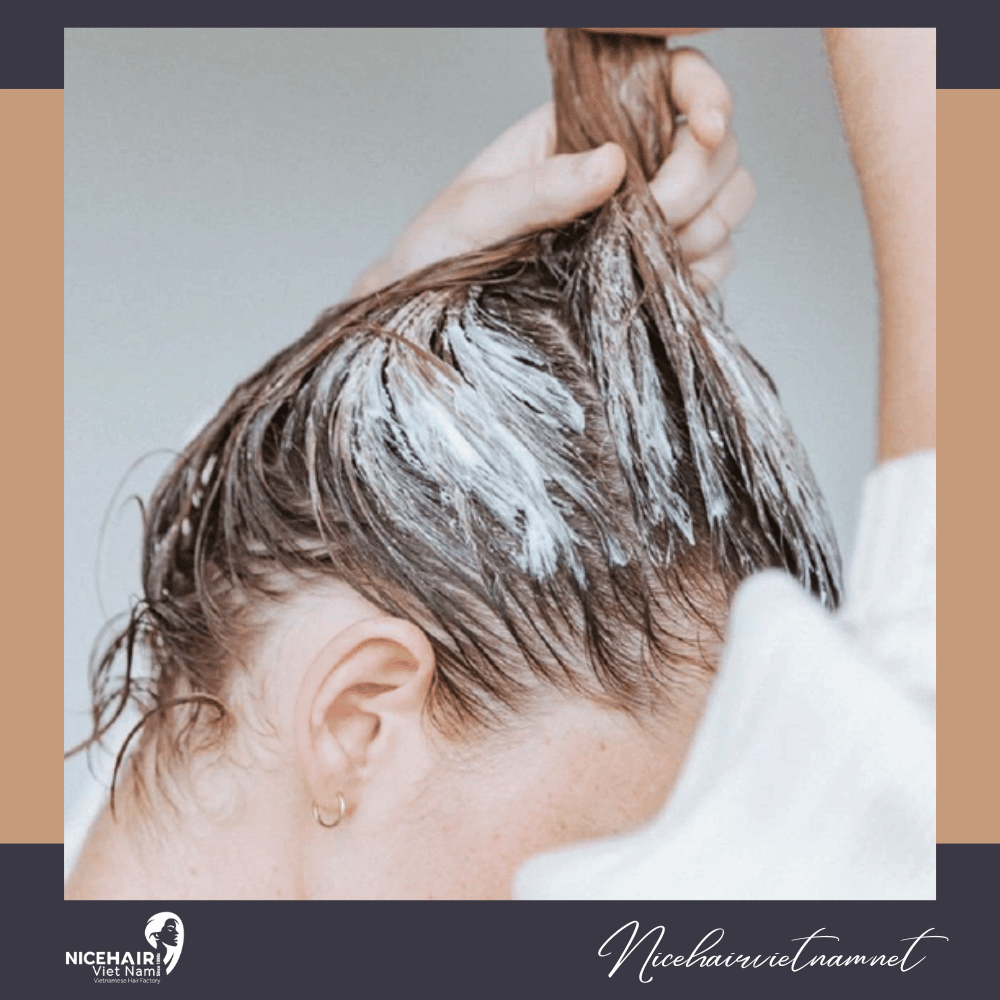
Insufficient nutrition
Improper hair washing techniques can contribute to hair problems, such as excessive hair loss. It’s important to understand the right way to wash your hair to maintain its health.
To keep your hair in good condition, you need to provide it with proper nourishment. Vitamins like Vitamin H and Vitamin B5 are essential for healthy hair. Our hair is mostly made up of protein, specifically a type called Keratin. If you’ve recently recovered from an illness or follow a vegetarian diet, your hair may be weaker and more prone to breakage.
To tackle these hair problems, experts recommend incorporating specific nutrients into your daily diet. Protein, vitamins (especially vitamin B), and other essential compounds are crucial for promoting healthy hair growth and preventing excessive hair loss. By ensuring that your diet includes these important nutrients, you can be pleasantly surprised by the remarkable improvement in the length, strength, and overall health of your hair.
Problems hair loss due to improper hair washing
Frequent hair washing, even once a day can weaken the hair and cause hair loss. This is because the shampoo contains cleansing agents that can strip away the natural oils, nutrients and moisture from the hair. On the other hand, washing the hair too infrequently can lead to a buildup of sweat on the scalp, clogging the hair follicles and resulting in hair weakness and hair loss. Therefore, it is important to find a balance and wash the hair in a proper and moderate manner to promote fast hair growth and ensure safe hair care.
To maintain healthy hair, it is recommended to follow a few guidelines when washing your hair. Firstly, consider the frequency of your hair washing based on your hair type and scalp condition. If you have oily hair, more frequent washing may be necessary, whereas for dry hair, washing less frequently can help retain natural oils. Secondly, choose a suitable shampoo that matches your hair type and addresses any specific concerns such as dryness, dandruff or damage. Thirdly, use lukewarm water instead of hot water as hot water can strip away moisture from the hair and scalp.
When shampooing, focus on cleansing the scalp rather than vigorously scrubbing the hair strands. Gently massage the scalp with your fingertips in circular motions to stimulate blood circulation and promote healthy hair growth. Rinse the shampoo thoroughly to remove any residue and follow up with a conditioner to restore moisture and nourishment to the hair. Lastly, avoid excessive use of styling products and heat styling tools, as they can further damage the hair and lead to breakage.
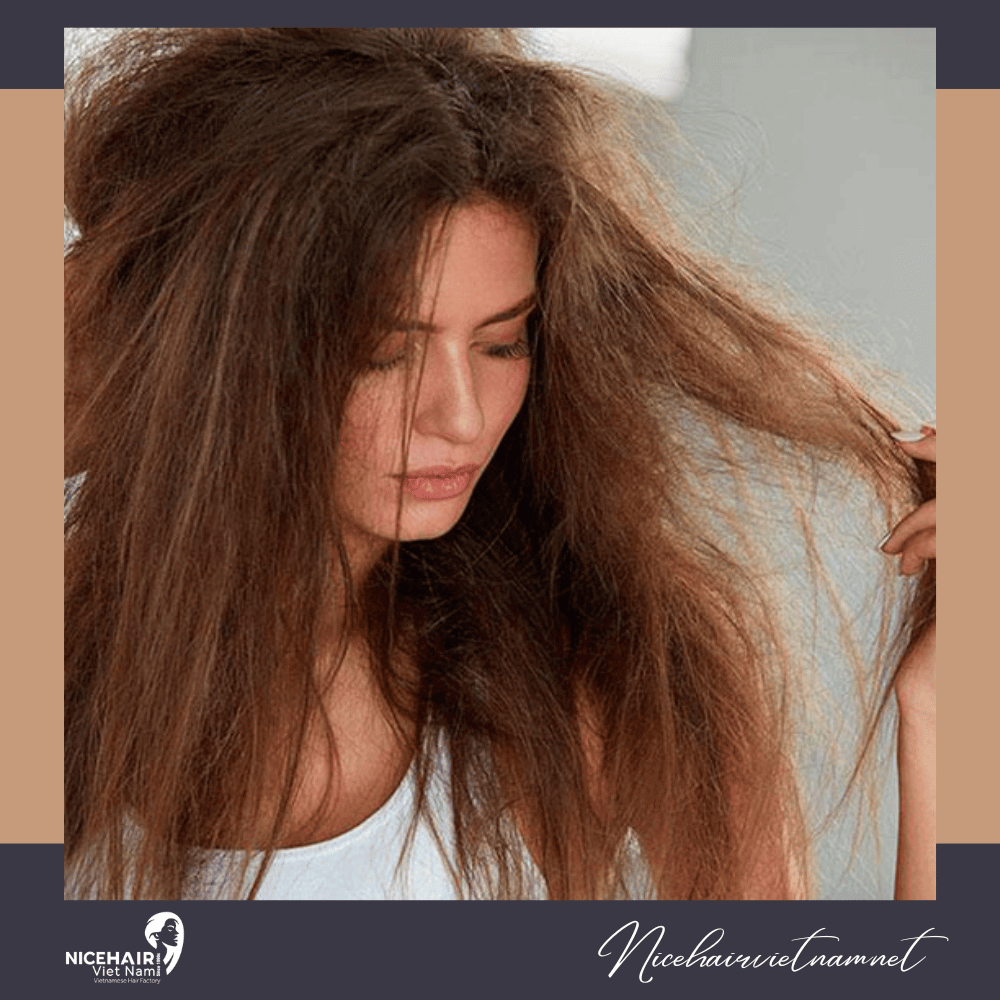
Problems of dry and brittle hair
When it comes to hair problems, one of the common and widespread issues is dry and brittle hair. Many people believe that having dry and brittle hair is simply a natural characteristic of their hair, but in reality, it is a prevalent concern for both men and women that needs to be addressed.
Dry and brittle hair can be indicative of underlying problems that, if left untreated, can lead to a range of other hair issues such as frizz, breakage, thinning and even hair loss. Understanding the causes and taking appropriate measures to nourish and protect the hair is essential for maintaining its health and vitality. Primary cause of dry and brittle hair is a lack of moisture and natural oils that are vital for keeping the hair hydrated and strong. Various factors can contribute to this condition, including exposure to environmental elements like wind, sun, and dry air. Additionally, frequent use of heat styling tools and excessive shampooing can strip the hair of its natural oils, exacerbating the problem. Furthermore, some individuals may have naturally drier hair due to genetic factors or certain medical conditions.
To combat dry and brittle hair, it is important to incorporate proper hair care practices and nourishing treatments into your routine. Using specialized conditioners and hair masks that are specifically formulated to hydrate and repair damaged hair can help restore moisture and improve the overall health of the hair. Additionally, incorporating natural remedies like pure olive oil or argan oil can provide deep hydration and nourishment to the hair strands, leaving them softer, smoother, and more resilient.
In addition to external treatments, it is crucial to pay attention to your diet and lifestyle habits, as they can significantly impact the health of your hair. Consuming a balanced diet rich in essential nutrients, especially those that promote hair health such as vitamins A, C, E, and biotin, can contribute to stronger and more vibrant hair. Furthermore, staying adequately hydrated and managing stress levels are important factors in maintaining healthy hair. Another important tip to prevent further damage is to handle the hair with care. Avoid vigorous towel drying or brushing wet hair, as it is more susceptible to breakage when it is in a weakened state. Opt for a wide-toothed comb or a brush with soft bristles to gently detangle the hair without causing additional stress or damage.
Hair damaged by sun exposure
Hair damaged by sun exposure is a common issue, especially during the summer days. While you make efforts to protect your skin from harmful sun rays, it’s equally important not to neglect your hair and scalp because sunlight can also be detrimental to your hair.
Excessive exposure to sunlight can cause dry and brittle hair and it can lead to other serious consequences such as split ends. Even if your hair is long and healthy, you should avoid using chemical products. Your hair can still suffer damage from the sun’s rays. Under the impact of sunlight, your hair may change color and turn reddish. Chemically treated hair can become yellow or dull if not protected from the sun.
Simplest way to protect your hair from the sun is by wearing a hat. Additionally, you should use specialized hair conditioners that contain zinc oxide. Using hair oils and sprays with UV protection is also an effective way to prevent sun damage. Moreover, it’s advisable to avoid being outdoors during the peak hours of intense sunlight, from 11 am to 3 pm as that is when sun’s rays are the strongest.
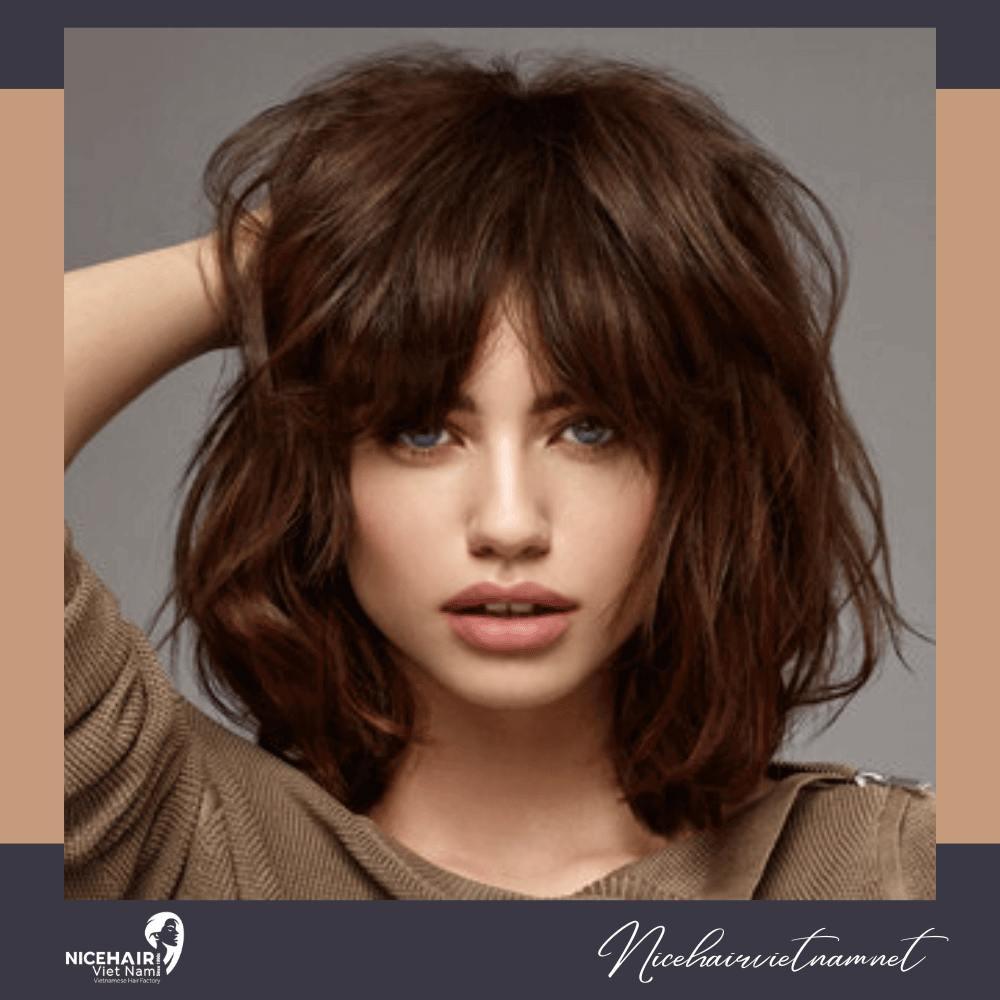
Tackling hair problems is essential for maintaining healthy and beautiful locks. By understanding the common issues such as hair loss, dandruff and dryness, we can implement effective solutions. Regularly washing with a mild shampoo, using a conditioner and avoiding excessive heat styling can help combat these problems. Additionally, adopting a balanced diet, staying hydrated and reducing stress levels contribute to healthier hair. Seeking professional advice from a dermatologist or trichologist is crucial for persistent or severe concerns. With right care and attention, you can overcome hair problems and enjoy luscious.

